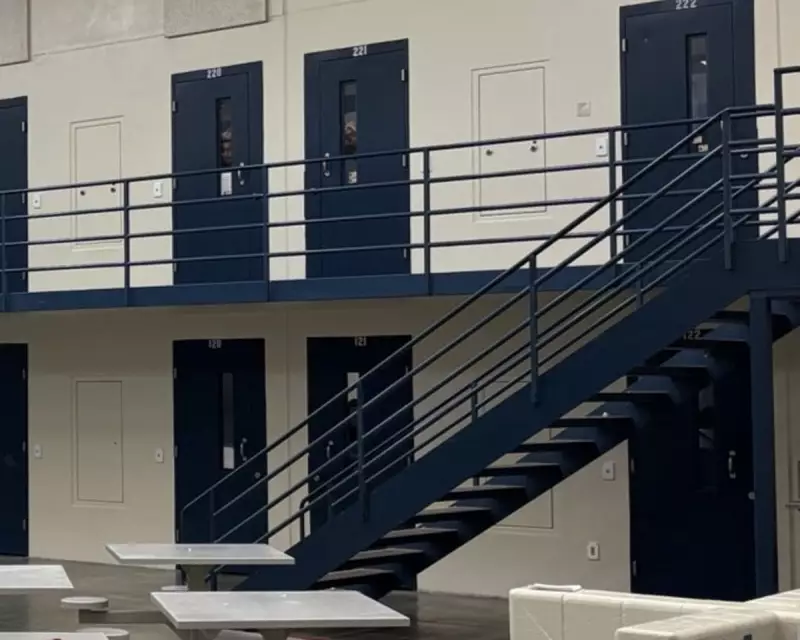
Seven individuals detained at California's largest Immigration and Customs Enforcement (ICE) facility have filed a federal class-action lawsuit against the US government, alleging "inhumane" and "life-threatening" conditions at the remote desert centre.
The legal challenge, filed on Wednesday, targets the California City detention centre, which opened in late August within a repurposed state prison located approximately 100 miles north-east of Los Angeles in the Mojave desert.
Allegations of Medical Neglect and Poor Conditions
The complaint paints a stark picture of a "decrepit" facility where essential medical care is routinely denied. Plaintiffs claim they have been refused cancer treatment, basic disability accommodations, and regular insulin for diabetes management.
According to the lawsuit, conditions are described as "dire," with sewage bubbling up from shower drains and insects crawling on cell walls. Detainees are reportedly locked in concrete cells the size of parking spaces for extended periods.
The facility, operated by private prison corporation CoreCivic, can hold more than 2,500 people and currently detains over 800 individuals, representing a 36% increase in ICE's California detention capacity.
Hunger and Abusive Treatment Claims
Residents have allegedly faced frequent hunger due to "paltry" meals, with those unable to afford supplemental food from the commissary going hungry. The complaint also describes "frigid" temperatures inside the facility, forcing detainees without money for sweatshirts to wear socks on their arms for warmth.
Despite being held for civil immigration violations, the lawsuit claims California City "operates even more restrictively and punitively than a prison." Families are denied physical contact during visits, communicating through glass partitions, and access to legal representation is severely limited.
The plaintiffs have accused staff of "abusive" behaviour and "unreasonable use of force," including an incident on 29 September where officers allegedly assaulted a handcuffed detainee with riot shields.
Specific Cases of Medical Negligence
The lawsuit details several alarming cases of medical neglect. Fernando Viera Reyes, who had a pending biopsy for prostate cancer before his detention, has allegedly been denied medical attention for weeks and still hasn't seen a urologist.
Fernando Gomez Ruiz, an LA resident for 22 years, has reportedly not received regular insulin for his diabetes since arriving in mid-October, leading to elevated blood sugar and a "large, oozing ulcer" on his foot. He fears potential amputation.
Jose Ruiz Canizales, a deaf and non-verbal plaintiff, has allegedly only communicated with staff once through a sign language interpreter since his arrival on 29 August. Staff reportedly "shrug their shoulders, walk away, or laugh at him" when he attempts communication.
Yuri Alexander Roque Campos, requiring daily heart medication, has been denied his prescriptions "for days at a time," resulting in two emergency hospitalisations for severe chest pain. A hospital doctor allegedly warned him "he could die if this were to happen again."
The Department of Homeland Security's assistant secretary, Tricia McLaughlin, has denied claims of "subprime conditions," stating that "no one is denied access to proper medical care" and that detained individuals receive three meals daily evaluated by dietitians.
The lawsuit comes as the Department of Homeland Security continues to expand immigration enforcement operations nationally, bolstered by $45 billion to increase ICE detention capacity with the goal of detaining more than 100,000 people.





